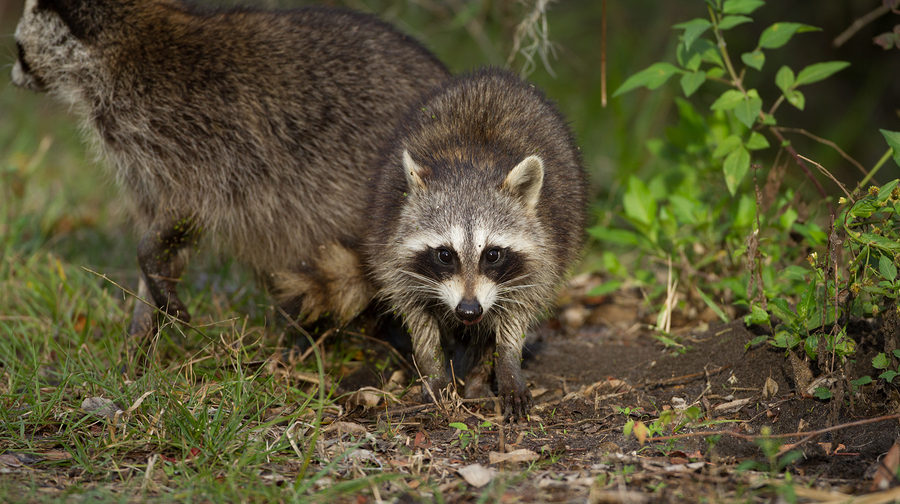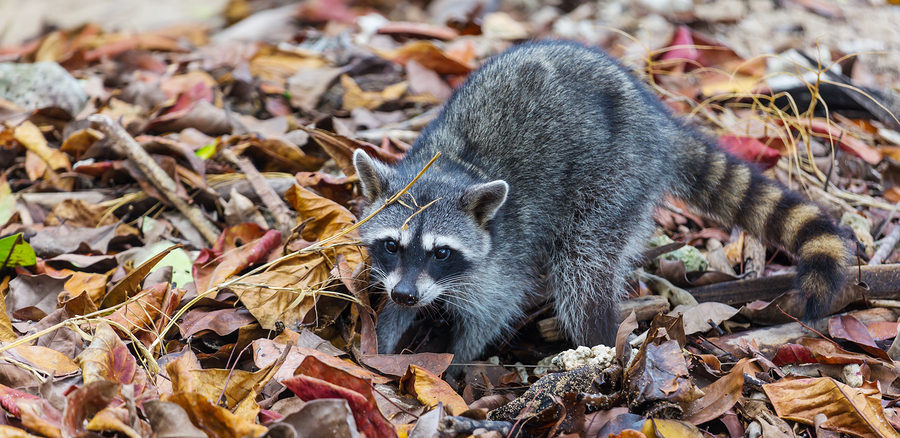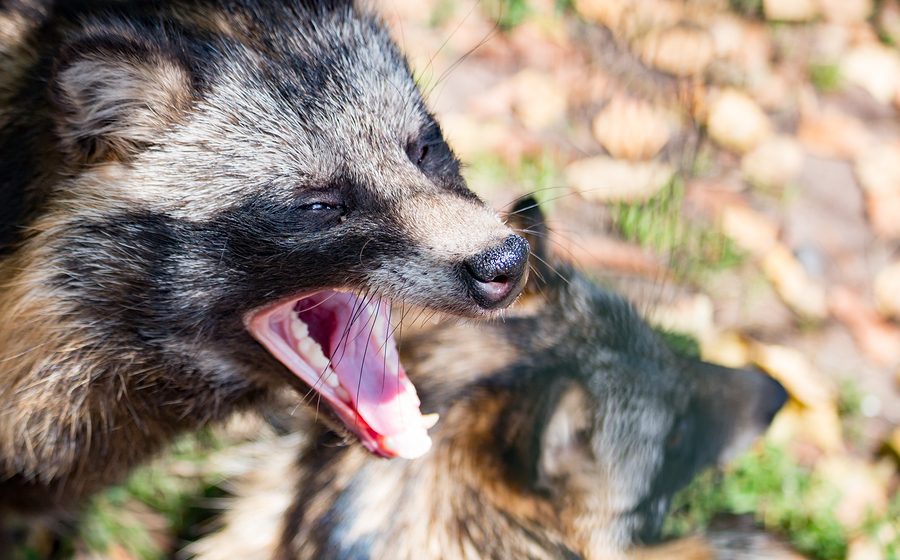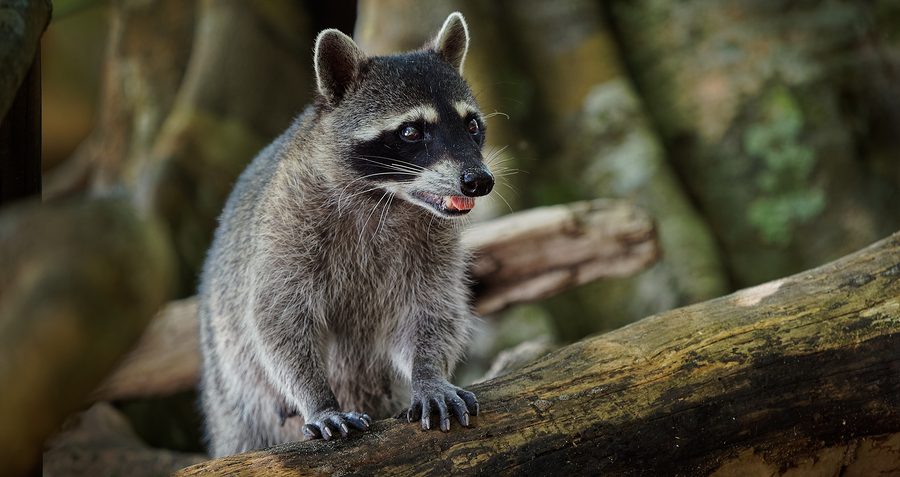Even though it is very unlikely that a raccoon will attack a human, there are still many reasons to be scared of them. One of the most threatening being transmissible disease. You see, raccoons are common carriers of several infectious diseases, as well as, various other pestilent contagions, all of which can be transmitted to both people and pets. For this reason, you simply do not want raccoons anywhere near your property, let alone your loved ones.
Continue reading to review some of the most common diseases and health risks associated with raccoons, as well as, how to protect your home from nuisance wildlife interference.

Rabies
The rabies virus is the most well-known disease that can be carried and transmitted by raccoons. Because this virus is 100% fatal once contracted, it is vital to have your pets properly vaccinated according to the recommended veterinarian schedule. Rabies is transmitted through blood, saliva, and other bodily fluids. This means a bite, scratch, or simple mix of fluid can pass the virus onto another host, just like the common cold. Once infected, rabies travels directly to the brain, where it causes inflammation (encephalitis), and ultimately, death. Unfortunately, there is no cure for the Rabies virus once a person or pet is infected.
Distemper
One of the leading causes of death among raccoon populations is a virus called Distemper, which is a highly infectious viral disease that is similar to the measles virus. Distemper in raccoons is primarily spread through bodily fluids and discretions, including blood, saliva, urine, and feces. This means it can travel and spread via airborne droplets or bodily contact. Unfortunately, there is no cure for distemper once an animal is infected with the virus. This is why it is so vital for pet owners to have their dogs and cats vaccinated on a yearly basis.
Roundworm
Raccoon roundworm is a parasite scientifically known as Baylisascaris Procyonis, which is related to the canine roundworm species. A roundworm can lay hundreds of thousands of eggs inside an adult raccoon per day. These eggs are then eliminated in their droppings, which is one way it is commonly exposed to humans and pets. Upon ingestion, the parasite immediately penetrates the walls of the intestine and go straight for the central nervous system. If untreated, the illness can lead to blindness, paralysis, and neurological disease. Raccoons can also spread other types of common parasites. The most common include fleas, ticks, mites and lice.
Additional Raccoon Diseases:
⯮ Giardia
⯮ Leptospirosis
⯮ Parvo
⯮ Coccidiosis
How to Get Rid of Raccoons in Kentucky
Call 502-553-7622 if you are experiencing raccoon problems in Louisville, Kentucky. We offer residential and commercial raccoon removal and control, as well as, raccoon proofing and prevention, minor restorations for raccoon damages, raccoon cleanup, and much more. We may even be able to perform homeowners’ insurance claim work. Request a free estimate or advice, anytime. Request a free estimate, anytime.






